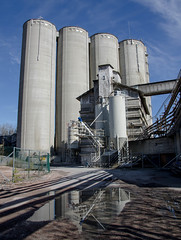In March of 2011, I ran a 10k in South Florida. It was a hot, slow, terrible race with very little shade and I finished it by sheer force of will.
I had no idea, in retrospect how important that race was going to be.
Since 2011, I have run five half-marathons and a lot of shorter races. In 2012 and 2013, I ran a race every month. And in 2013, I participated in New York Road Runner's 9+1 program to get guaranteed entry into the NYC Marathon.
In 2014, I moved from Brooklyn to Georgia to take a new job. Two weeks into my new job, I stepped of a curb, rolled my ankle, and sprained it pretty significantly. I was kind of bummed that I didn't get crutches, but I did get a pretty intimidating looking lace-up brace. Between the new job and the injury, I had to take a few months off from running. I haven't come anywhere close to running a race per month and 5k, a distance that has pretty recently felt easy to me, seems like a huge challenge.
Despite all of that, I've been running since mid-August. I started on the Couch to 5k program, the program that I used when I started running. I started with run/walks on the treadmill that were more walking than running and moved to running outside. I have increased my distance and need fewer walking breaks. I have to wear my brace when I run, but it's pretty cool to see how far I've come in such a short amount of time.
On Sunday, I ran my first 5k since moving to Georgia on an out-and-back on our town's greenway. I had, for a few weeks, been running the greenway three times per week. I'd been building up distance-1.5 miles, 1.75 miles, 2 miles but I'd never done the full 5k out-and-back.
Sunday was warmer than it had been for most of the month of October and the race was at 2:30 in the afternoon. I had never run the entire 5k course before and I didn't realize how much of it
wasn't shaded. Even in a sleeveless shirt and shorts, I overheated. I had a hot, slow, terrible run and it was devastating to me. I was sad that I couldn't run like I used to and sad that 3 years of work had seemingly been wiped out by three months of inactivity driven by injury.
I was embarrassed and sad and I really wanted to quit running forever. For about two hours on Sunday afternoon, I was ready to turn in my running shoes and all of the free shirts I've gotten as race giveaways. I didn't feel like I had it in me to go running ever again.
I think failure does that to you. I think failure makes you forget that sometimes you don't succeed on the first try. I think failure clouds your vision and renders you incapable of seeing what you've done well. Having a terrible time on a hot day made me forget that four months ago, walking was difficult and I had to wear a brace to ALA Annual in Vegas. One run blinded me to everything that I wrote in the previous paragraphs in this post.
When the fog of embarrassment and sadness lifted, I recognized that while I had come a long way from where I started in August, between the hilly terrain and warmer climate of Georgia and the injury I'd sustained, I was going to have recalibrate what success in running meant to me. I would have to build my endurance more slowly and be kinder to myself when an unexpected warm day led to a less than stellar run.
This week, I'm going to sign up to run another 5k that will take place on that same greenway in a couple of weeks. My hope is that a few more weeks of training and (hopefully) cooler temperatures will lead to a more agreeable outcome. I am using my time from Sunday's 5k as a benchmark and I'm hopeful that my run in a couple of week will lead to a new-to-me PR. Sure, it's a lot slower than where I was at the beginning of 2014, but I have to start somewhere.
The point is this, dear reader: don't let failure stop you from doing the things you really want to do. Allow yourself to wallow for a minute if you need to, but get back up and try again. Whether it's a run that didn't go well or a work project that didn't go as planned, there's always another chance to do it again. Don't let the fog of embarrassment and sadness derail you from that awesome plan you have. Instead, use that failure to serve as your baseline for the next attempt. Do better, push past it, and set a new baseline. The thing that nobody ever thinks to tell you is that sometimes your dreams are more of an iterative design process than a straight line.
Stay positive,
Erin

